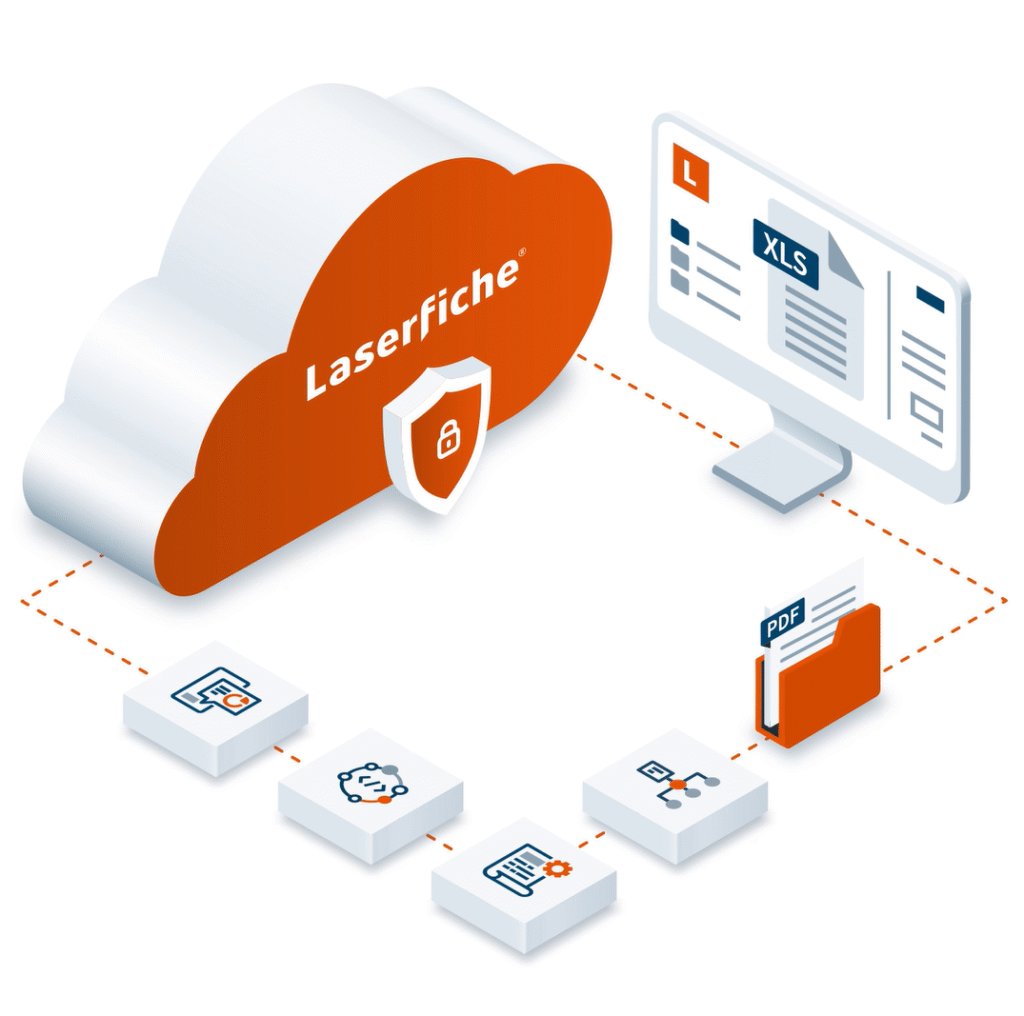The landscape of Human Resources (HR) is undergoing a significant transformation. In an era where technology drives innovation across industries, HR departments are not exempt from this wave of change.
Traditional human resource management methods are becoming increasingly obsolete as organisations seek more efficient, data-driven, and agile approaches. Dynamics 365, a suite of enterprise resource planning (ERP) and customer relationship management (CRM) applications by Microsoft, offers a comprehensive solution to meet these evolving needs. This article explores how leveraging Dynamics 365 can revolutionise HR practices, enhance employee experiences, and lead to better organizational outcomes.
HR professionals are tasked with a multitude of responsibilities, ranging from recruitment and onboarding to performance management and employee engagement. In a dynamic business environment, the ability to manage these functions efficiently can significantly impact an organization’s success. Dynamics 365 provides a unified platform that integrates various HR processes, enabling a seamless flow of information and fostering collaboration across departments. This integration is essential for creating a cohesive HR strategy that aligns with the organization’s overall objectives.
Moreover, as the workforce becomes increasingly diverse and distributed, HR departments must adapt to new challenges related to remote work, flexible schedules, and employee well-being. Dynamics 365 offers tools that support remote collaboration, track employee performance, and gather insights into employee satisfaction. By leveraging these capabilities, HR professionals can develop strategies that not only enhance productivity but also promote a positive and inclusive workplace culture.
Streamlining Recruitment Processes
Dynamics 365 enables HR departments to streamline recruitment by automating repetitive tasks, managing candidate information, and tracking application progress in real-time. This results in a more efficient hiring process, reducing time-to-fill and ensuring the acquisition of top talent.
The system can also integrate with various job boards and social media platforms, expanding the reach of job postings and attracting a diverse pool of candidates. By leveraging advanced analytics, HR professionals can identify the most effective recruitment channels and optimize their strategies accordingly. Furthermore, Dynamics 365 offers candidate relationship management tools that nurture potential hires even before a position becomes available, creating a talent pipeline that can be tapped into when needed. This proactive approach not only shortens the recruitment cycle but also improves the quality of hires by ensuring that candidates are engaged and informed throughout the process.
Enhancing Employee Onboarding
The onboarding process can be complex and time-consuming. Dynamics 365 simplifies this by providing a centralized platform for managing all onboarding activities, from document submission to training schedules. This ensures new hires have a seamless and positive experience as they integrate into the organization. Automated workflows guide new employees through each step of the onboarding process, ensuring that nothing is overlooked.
Additionally, personalized onboarding portals can provide new hires with easy access to important information, resources, and contacts, helping them feel welcomed and supported from day one. Dynamics 365 also facilitates virtual onboarding, which is increasingly important in a remote work environment. By offering interactive training modules, virtual orientation sessions, and real-time feedback, the system helps new employees acclimate quickly and effectively, regardless of their physical location. This comprehensive approach to onboarding not only boosts employee satisfaction but also accelerates time-to-productivity, allowing new hires to contribute to the organization’s success sooner.
Optimizing Performance Management
Performance management is crucial for employee development and organizational growth. Dynamics 365 facilitates continuous performance tracking, goal setting, and feedback. This allows managers to monitor progress, identify areas for improvement, and provide timely support to employees. The platform supports a variety of performance appraisal methods, including 360-degree feedback, self-assessment, and peer reviews.
By providing a comprehensive view of employee performance, Dynamics 365 enables managers to make informed decisions about promotions, training, and development opportunities. The system also fosters a culture of continuous feedback and development, where employees receive regular, constructive feedback that helps them improve and grow in their roles. Through performance dashboards and analytics, HR and managers can identify high performers and potential leaders, ensuring that talent is recognized and nurtured. This data-driven approach to performance management not only enhances individual employee growth but also contributes to the overall effectiveness and competitiveness of the organization.
Improving Employee Engagement
Employee engagement is a key factor in productivity and retention. Dynamics 365 offers tools for conducting employee surveys, analyzing feedback, and implementing engagement initiatives. By understanding employee sentiments, organizations can create a more motivating and satisfying work environment. The platform’s engagement analytics provide insights into the factors that drive employee satisfaction and identify potential areas of concern. With this information, HR professionals can design targeted interventions to enhance engagement and foster a culture of recognition and appreciation.
Dynamics 365 also supports employee engagement through its communication and collaboration tools. These tools facilitate open and transparent communication between employees and management, promoting a sense of inclusion and belonging. Social recognition features allow colleagues to recognize and celebrate each other’s achievements, strengthening team bonds and boosting morale. By fostering a positive and engaging workplace culture, Dynamics 365 helps organizations reduce turnover, increase productivity, and create a more resilient and committed workforce.
Facilitating Learning and Development
Continuous learning is essential for keeping employees skilled and competitive. Dynamics 365 supports learning and development by offering a platform for creating and managing training programs, tracking employee progress, and identifying skill gaps. This ensures that employees have access to the resources they need to grow and succeed. The system can recommend personalized learning paths based on an employee’s role, career aspirations, and performance data.
By integrating with e-learning platforms, Dynamics 365 provides employees with a wide range of training options, from online courses to virtual workshops and certifications. The platform’s learning management system (LMS) enables HR to monitor and evaluate the effectiveness of training programs, ensuring that they meet organizational needs and employee expectations. By offering a variety of learning modalities, such as microlearning, blended learning, and on-the-job training, Dynamics 365 caters to different learning preferences and schedules. This comprehensive approach to learning and development not only enhances employee skills and competencies but also supports career growth and job satisfaction, leading to higher retention and a more capable workforce.
Ensuring Compliance and Risk Management
Compliance with labor laws and regulations is a critical aspect of HR management. Dynamics 365 helps organizations stay compliant by providing tools for tracking compliance requirements, managing documentation, and conducting audits. This minimizes the risk of legal issues and ensures adherence to industry standards.
The platform’s compliance management features include automated alerts for upcoming regulatory changes, centralized storage of compliance documents, and audit trails that track compliance-related activities. By maintaining a comprehensive record of compliance efforts, organizations can demonstrate their commitment to legal and ethical standards. Dynamics 365 also supports risk management by identifying and mitigating potential HR-related risks. Through data analytics and predictive modeling, the system can flag potential compliance issues, such as irregularities in employee timekeeping or benefits administration. This proactive approach to risk management not only protects the organization from legal and financial penalties but also promotes a culture of accountability and transparency.
Enhancing Data-Driven Decision-Making
In the age of big data, making informed decisions is paramount. Dynamics 365 offers advanced analytics and reporting capabilities that provide HR professionals with insights into workforce trends, performance metrics, and other key indicators. This data-driven approach enables strategic decision-making and improves overall HR effectiveness.
By leveraging predictive analytics, HR teams can anticipate future workforce needs, identify potential talent shortages, and develop proactive strategies to address these challenges. Additionally, real-time dashboards provide a visual representation of key HR metrics, allowing leaders to monitor progress and make adjustments as needed. Dynamics 365’s robust analytics capabilities extend to every aspect of HR, from recruitment and onboarding to employee engagement and retention. By consolidating data from various sources into a single platform, the system provides a holistic view of the workforce, enabling HR to identify patterns and correlations that might otherwise go unnoticed. This comprehensive insight empowers HR leaders to make evidence-based decisions that align with organizational goals and drive sustainable success.
Supporting Workforce Planning and Analytics
Effective workforce planning requires a clear understanding of current and future talent needs.
Dynamics 365 facilitates workforce planning by offering tools for analyzing workforce demographics, predicting future staffing needs, and developing strategies to address potential gaps.
This ensures that the organization is well-prepared to meet its evolving demands. The platform’s scenario modeling capabilities allow HR professionals to explore different workforce planning scenarios and assess their impact on the organization.
By aligning workforce plans with business goals, HR teams can ensure that they have the right talent in place to support organizational growth and innovation. Dynamics 365 also supports succession planning by identifying high-potential employees and preparing them for future leadership roles. Through talent mapping and gap analysis, HR can develop targeted development plans that ensure a continuous pipeline of skilled and capable leaders. This strategic approach to workforce planning not only addresses immediate staffing needs but also positions the organization for long-term success in an ever-changing business environment.
Integrating HR with Other Business Functions
HR does not operate in isolation; it intersects with various business functions. Dynamics 365 provides seamless integration with other enterprise systems such as finance, operations, and sales. This holistic approach ensures that HR activities are aligned with broader organizational goals and enhances overall operational efficiency.
By integrating HR data with financial and operational data, organizations can gain a comprehensive view of their workforce and its impact on business performance. This integrated approach enables more effective budgeting, forecasting, and resource allocation, ensuring that HR initiatives support the organization’s strategic objectives. The interoperability of Dynamics 365 allows for smooth data flow between departments, reducing silos and fostering collaboration. For example, integrating HR with finance enables more accurate payroll processing and budgeting, while connecting HR with sales and operations helps align talent management with business demand. This holistic view of organizational data supports better decision-making and ensures that all functions work in harmony towards common goals.
Conclusion
The future of Human Resources is closely tied to technological advancements, and Dynamics 365 is the catalyst for this evolution. The integration of HR functions into a single, comprehensive platform in Dynamics 365 transforms traditional HR practices into strategic initiatives that drive organizational success.
By leveraging the platform’s extensive experience, it can simplify recruitment procedures, improve onboarding, optimize performance management, increase employee engagement, facilitate learning and development, ensure compliance, and support data-driven decision-making.
The increasing complexity and diversity of the workplace have put a strain on HR professionals, who are now faced with the challenge of managing multiple employees at different times due to their remote work duties, flexible hours, and diverse workforce.








